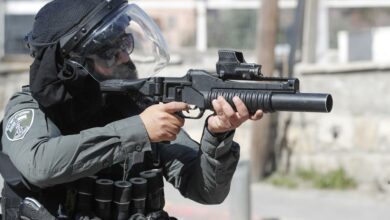UN holds 1st-ever meeting to advance needs of terrorism victims

By Javier Otazu
United Nations, Sep 8 (EFE).- The United Nations on Thursday opened an unprecedented two-day meeting aimed at addressing key issues affecting victims of terrorism.
Attended by 600 people both in-person and online, including survivors, diplomats, experts and representatives from civil society, academia and the private sector, the event marked the first time a UN conference on that scourge has focused on the victims as opposed to the perpetrators.
Why has it taken the UN so long to take that step?
Raffi Gregorian, deputy to the under-secretary for the UN Office of Counter-Terrorism (UNOCT), said a series of indiscriminate massacres in recent years with large numbers of casualties led the global body to hold the gathering.
Titled the UN Global Congress of Victims of Terrorism, it will serve through Friday as a forum for sharing ideas on the protection, remembrance and recognition of victims and the provision of support, assistance and access to justice for these people and their families.
The president of the 76th session of the UN General Assembly, Abdulla Shahid, recalled during the gathering that most terrorism victims are innocent people who were in the “wrong place at the wrong time,” noting that it often takes them years to recover and that some never obtain justice.
Russian diplomat Vladimir Voronkov, under-secretary for the UNOCT, recalled that 97 percent of terrorist attack deaths occur in countries mired in armed conflict and that the victims are typically killed in public squares, buses or places of leisure.
He said the Internet and social media have become a powerful vehicle for expressions of hate and xenophobia, which often are associated with acts of terrorism.
One of the reasons for Thursday’s Congress is to help countries establish specific national legal frameworks for protecting victims, according to the diplomat, who said that process should involve not only politicians and jurists but also civil society as a whole.
Voronkov stressed the need for comprehensive support – economic, psychological, medical and educational – for victims of terrorism, adding that funds will need to be raised to cover those costs.
Spain sought a lead role at the gathering based on its long experience in this area, exemplified by a pioneering law passed in 2011 and titled the Recognition and Comprehensive Protection of Victims of Terrorism Act.
Spanish Interior Minister Fernando Grande-Marlaska spoke at the session and said his country is proof that “democracy and the rule of law can defeat terrorism.”
Two relatives of prominent victims of violence perpetrated by the now-defunct Basque terrorist group ETA accompanied Grande-Marlaska at the event: Maixabel Lasa, widow of a former civil governor of Gipuzcoa province, Juan Maria Jauregui, who was killed in 2000; and Tomas Caballero, son of the like-named Spanish union leader and politician from the northern autonomous community of Navarre who was assassinated in 1998.
Lasa told Efe she has been surprised during visits to schools that young people in Spain have little knowledge of the terrorist violence the country suffered.
She said she is a firm believer in reconciliation and in so-called “restorative encounters” between survivors of terrorist attacks or victims’ relatives and repentant perpetrators.
But other victims of terrorism have been unable to forgive and have traveled to the Congress to meet other people in similar situations and find a way out of the spiral of silence and powerlessness they find themselves in, said American Amy O’Neill, a survivor of the 2013 Boston Marathon bombing. EFE
fjo/mc





